SUMMARY
Analyzed sentiment and keyword trends on feminist activism and the #4B Movement in South Korea, highlighting platform-based discourse differences and societal challenges in gender equality movements.
OVERVIEW
Final Project for Digital Humanities 120: Social Media Data Analytics
Duration: 3 Weeks
ROLES

Data Scraping
Gathering and cleaning datasets.

Digital Humanities
Analyzing social media numbers to wider social context.
TEAM

Individual Project
QUESTION
How do Koreans' sentiments toward gender-related issues differ between anonymous platforms like Twitter and more authenticated platforms like Naver Blog between 2016-2020?
What are the most frequently used keywords in gender-related discussions on Twitter (X) and Naver Blog in Korea?
SIGNIFICANCE + RELEVANCY TO CURRENT EVENTS

2024 ELECTIONS
In response to the 2024 U.S. elections, American women voiced their concerns over overturned Roe v. Wade and the future of their reproductive rights. One movement that came into light during the discussion of how to react to the changed political circumstances was the #4B Movement
CONTEXT

What does it mean to exist as a women in South Korea?
Navigating the Sociocultural Landscape
When I first arrived in South Korea, my cousins warned me to always check for hidden spy cameras in public bathrooms—a precaution rooted in a widespread issue.
In 2018 alone, the South Korean Supreme Court reported over 6,800 cases of illegal filming.
According to the 2017 Global Gender Gap Report by the World Economic Forum, South Korea ranked 118th out of 144 countries in terms of gender equality, significantly trailing the United States, which ranked 51st.
OECD reported in 2022 that South Korea had the highest gender pay gap among member countries, with a disparity of 31.2%.
Gender discrimination in South Korea extends beyond statistics and begins even at birth.
During the 1990s, the prevalence of sex-selective abortions rose sharply, fueled by societal preferences for sons, who are traditionally seen as heirs to the family lineage.
Cultural norms, such as children taking the father's surname and married women being absorbed into their spouse’s family, reinforced this bias.
The alarming sex ratio of 116.5 boys for every 100 girls prompted the government to ban the disclosure of a baby’s sex before the 32nd week of pregnancy to curb selective abortions.
Gender inequality manifests in other forms as well, including issues like revenge porn, stalking, and lenient legal penalties for sexual harassment and assault.
For instance, in the infamous Nth Room case—a cybersex trafficking scandal facilitated through Telegram and Twitter—the organizer, Cho Ju-bin, received a 40-year prison sentence despite the involvement of 103 victims, 31 of whom were minors.
In a 2008 case, Cho Doo-soon, who brutally raped an eight-year-old girl, was sentenced to just 12 years in prison. Upon his release in 2020, he resided less than one kilometer from the victim, sparking widespread outrage over inadequate legal protections for survivors.

What is #4B Movement?
Defining the Movement
The #4B Movement emerged from a confluence of societal and cultural triggers, including the #MeToo movement, the rise of the Ilbe Storehouse platform (a controversial Korean website known for its overtly sexist, racist, homophobic, and far-right views), and the 2016 Seocho-dong public toilet murder case.
The name “4B” derives from the Korean term “비” (非), meaning “to oppose” or “to reject.”
At its core, the movement aims to empower women by rejecting all forms of dependence or association with men.
Participants commit to four tenets: abstaining from dating, marriage, sexual relationships, and childbearing.
However, the movement has also attracted criticism, with some raising concerns about allegations of transphobia among its members and the association of some participants with Megalia—a platform infamous for its misandrist views. These critiques highlight ongoing debates surrounding inclusivity and extremism within the movement.

Authenticated Identities on Social Media
Online Accountability
While freedom of expression is legally protected in South Korea, certain online platforms require additional measures to maintain a more regulated internet community.
One such measure is the use of an i-PIN, a digital authentication tool that requires users to input their government ID number and phone number to verify their identity. This system ensures that accounts on these platforms can be traced back to individuals, thereby eliminating anonymity.
A prominent example of a platform utilizing this system is Naver Cafe, one of South Korea’s largest online communities.
STUDY LAYOUT

Authenticated Identities on Social Media
Online Accountability
Scraped posts including #4B, #Feminism, and #Women from 2016-2020 through Apify and Octoparse.
Cleaned datasets to exclude unrelated topics (e.g., #4B: pencil type, lists, etc.; #Women: women best actress, etc.) or empty posts (due to photos).
Translated content using Google Translate plug-in.
Applied sentiment analysis through Python sentiment tracker, generating scores between -1 (very negative) and 1 (very positive).
Visualized data using cluster plot and average linear graph.
Compare dataset.
LIMITATIONS

Authenticated Identities on Social Media
Online Accountability
Octoparse was able to scrape only 1,000 posts per year for each dataset.
Due to the dataset being translated, some cultural references, slang, and connotations were lost in translation, which affected the sentiment scores.
For Twitter, the #Women dataset was heavily censored, resulting in a flawed data set.
DATASET VISUALIZATION + ANALYZATION

Sentiments over Time for #Feminist on Naver Cafe
Figured Through Python
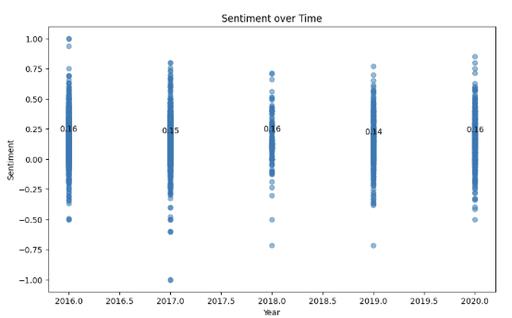
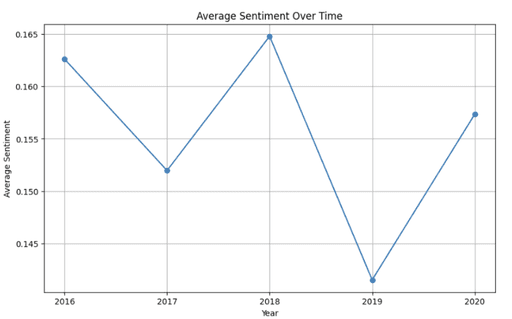

On Naver Cafe, the platform’s longer posting format often results in more measured language compared to other social media platforms.
The high maximum word count frequently leads to posts diverging from the main topic associated with the keyword. To filter out irrelevant commentary, I retained only the sentence before and after each mention of the keyword.
Naver Cafe posts also frequently reference news articles and studies, leveraging the word count to provide expanded insights.
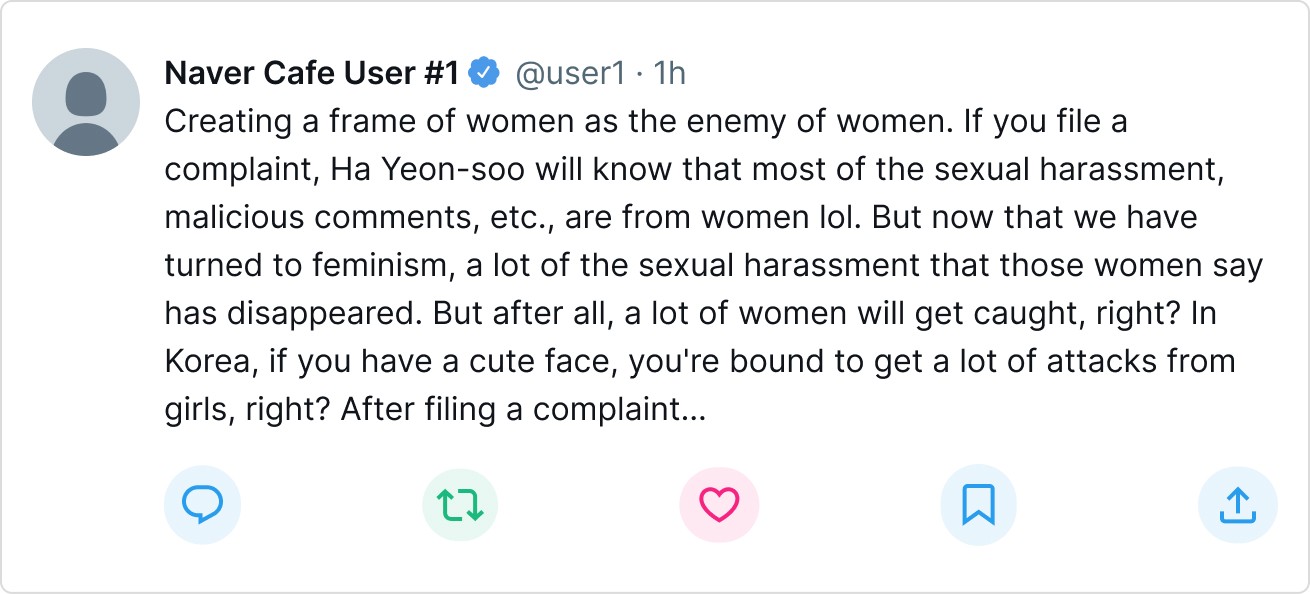

Sentiments over Time for #Feminist on Twitter
Figured Through Python
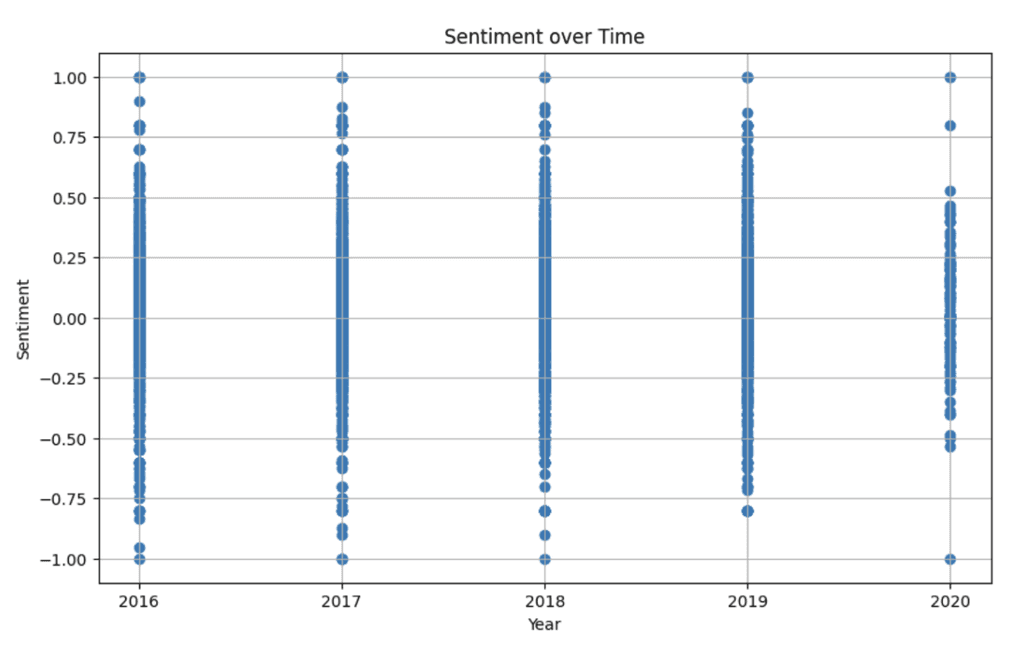
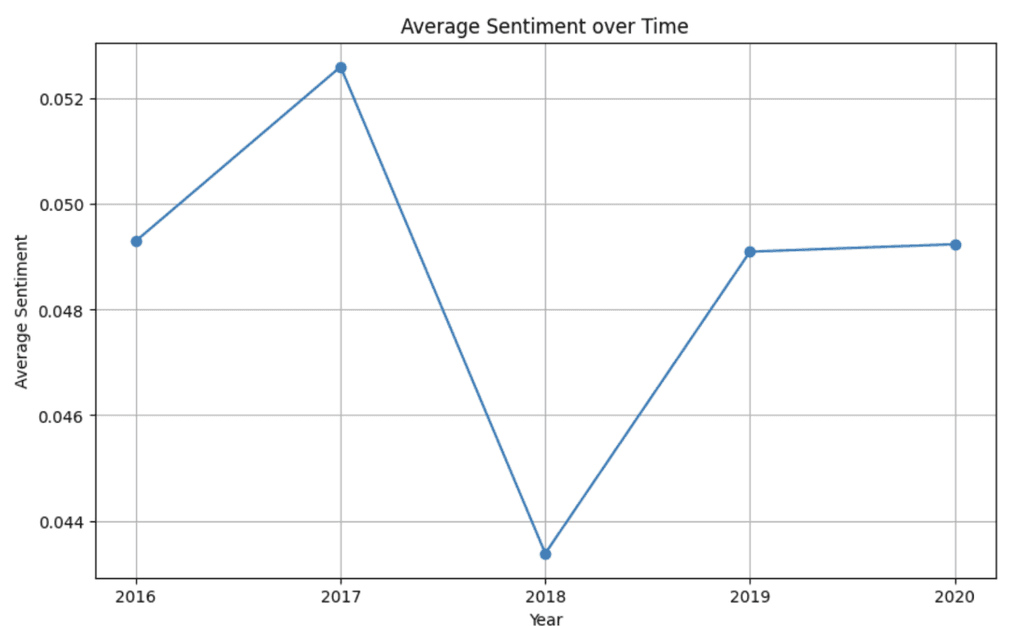
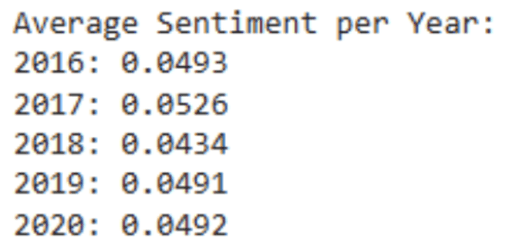
Minimal cleaning was required.
Posts were highly vocal, either supporting or opposing the movement, with little evidence of bot-generated spam. This dataset also highlighted ongoing debates about the feminist movement being stereotyped as an overly radical political agenda.
The data visualization reflects the sentiment trends for "Feminist" from 2016 to 2020, showing a notable positive peak in 2018, followed by a steep decline in 2019. This drop coincides with the resurgence of feminist movements that year, particularly the #MeToo Movement and the #EscapeTheCorset trend on South Korean social media.
Compared to other datasets, the #Feminist dataset displayed significantly lower sentiment scores, with the scatter plot revealing extreme sentiment drops throughout the years. Additionally, it contained the most polarized opinions.
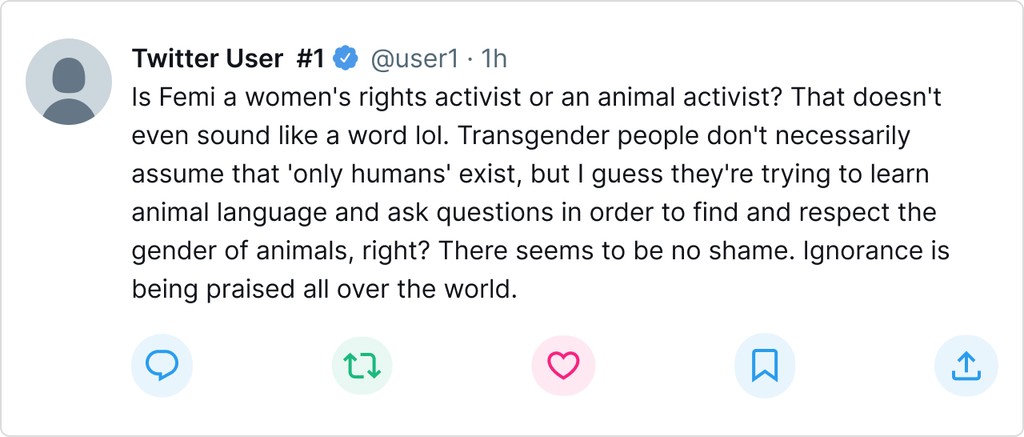
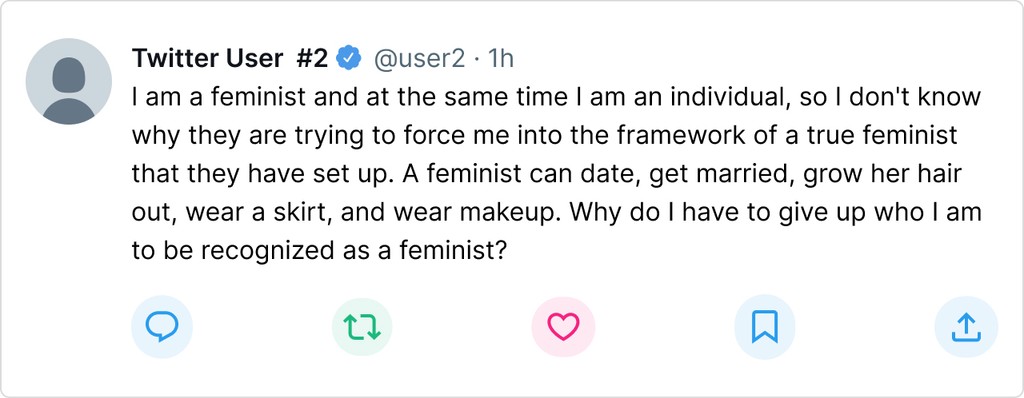

Sentiments over Time for #Women on Twitter
Figured Through Python
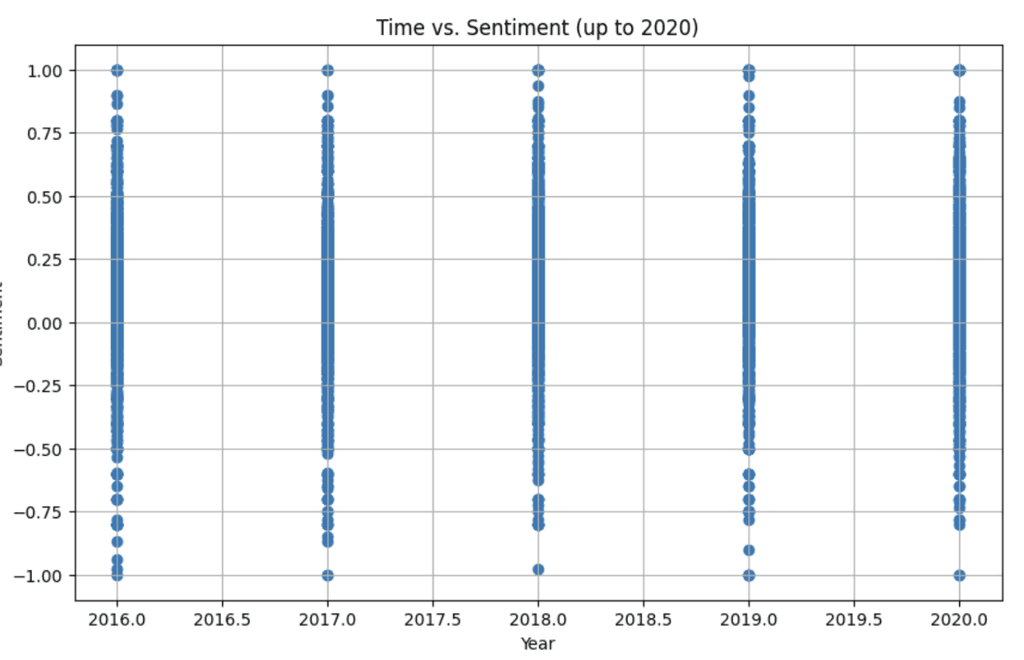
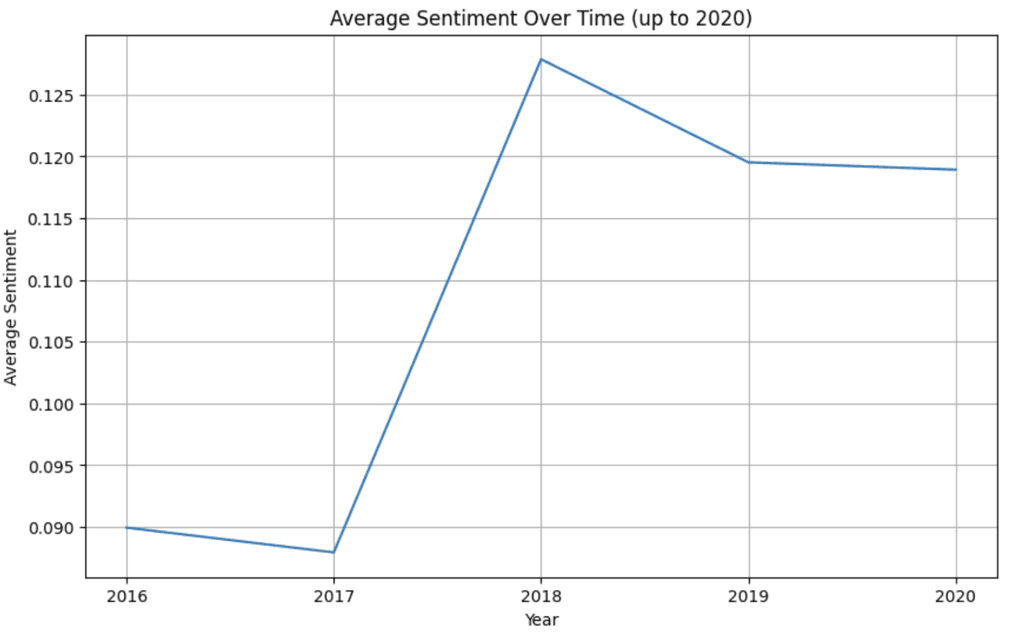
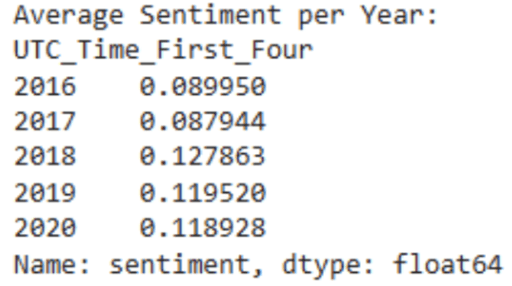
The dataset required significant cleaning due to a high volume of bot-generated spam content. Despite this, the sentiment analysis revealed a balanced distribution of positive and negative sentiments.

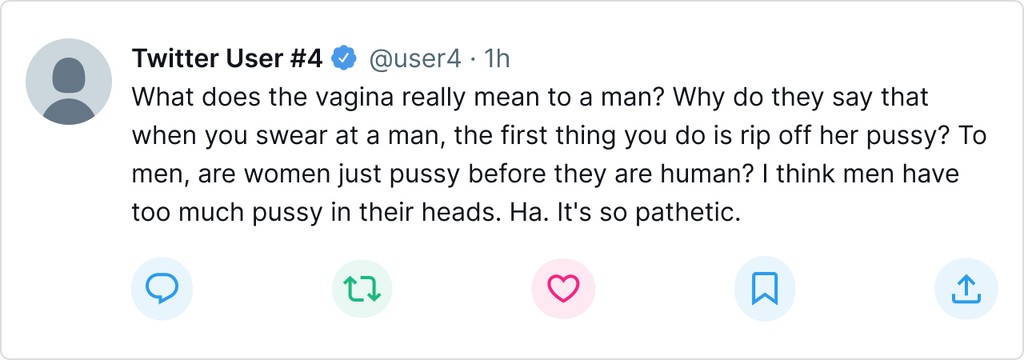
TAKEAWAYS
The dataset reveals polarized gender discourse, widespread bot-generated spam, and deep societal divides, highlighting ongoing cultural tensions around gender equality in South Korea.
FINAL ANALYSIS + REFLECTION
Summary
This project reveals the deeply entrenched societal divide in South Korea regarding gender-related issues, as expressed through online platforms. Social media, which often acts as a lens into public sentiment, showed significant disparities in tone, sentiment, and discourse style across platforms. Anonymous platforms like Twitter (X) amplified hostile and aggressive posts, while authenticated platforms like Naver Cafe provided more structured, albeit sometimes tangential, discussions.
Keywords
The most frequently used keywords, such as “Anti-Marriage” and “Anti-Pregnancy,” highlight the cultural backlash against traditional gender roles and societal pressures, reflecting the core philosophies of the #4B Movement. However, the pervasive negativity, even within feminist-related posts, underscores the challenges faced by these movements in gaining societal acceptance.
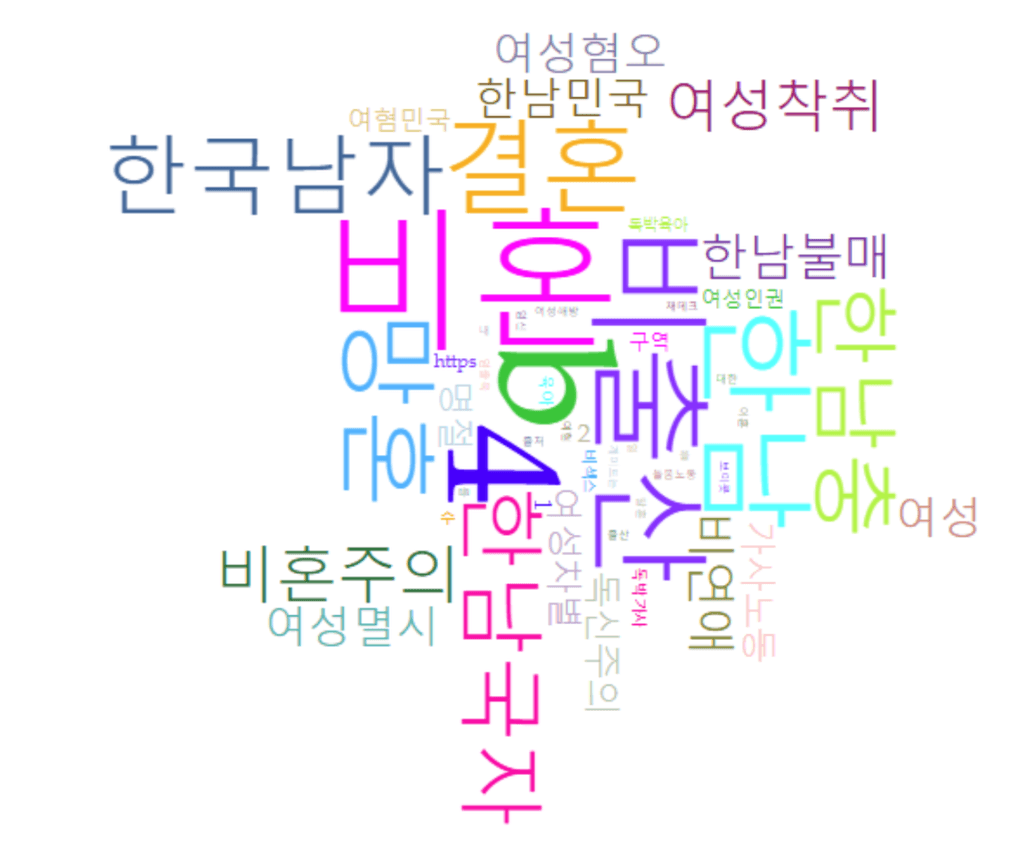
Sentiment Analysis
Sentiment analysis demonstrated that posts related to the #feminist movement were marginally more positive compared to those of the #4B Movement. This difference could be attributed to the radical nature of the #4B ideology, which challenges deeply ingrained cultural norms and thus provokes stronger resistance.
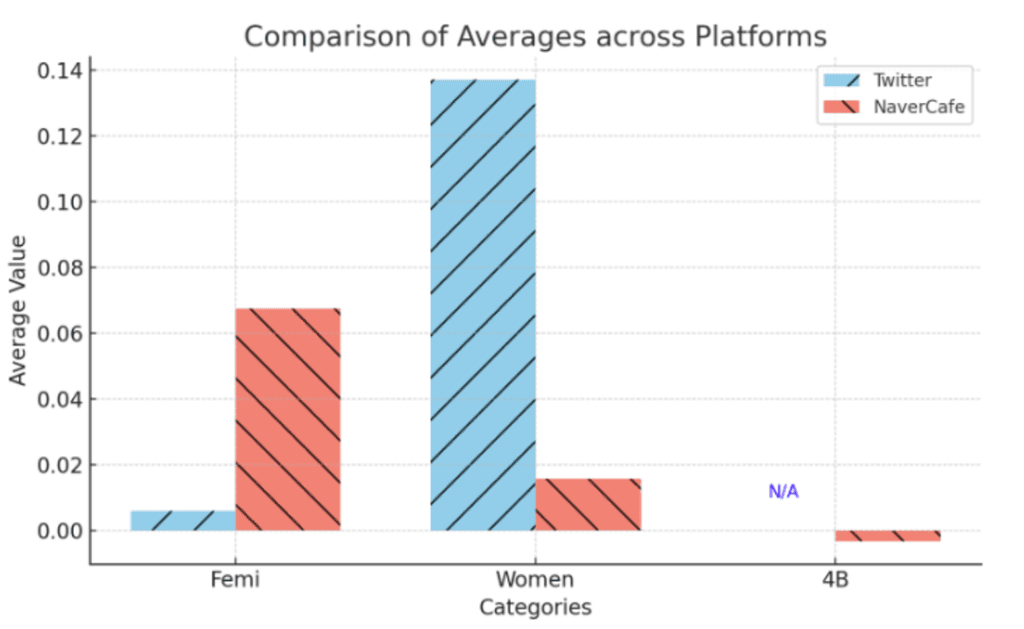
Final Words
The limitations of translation and sentiment analysis further highlight the complexity of analyzing nuanced cultural discourse through automated tools. Nuances such as sarcasm, cultural references, and slang often get lost, potentially skewing sentiment scores.
Ultimately, this project exposed the hostility and polarization surrounding gender equality movements in South Korea. It also raised concerns about the role of social media in either perpetuating or challenging gender biases. The findings call attention to the need for continued advocacy and dialogue to address the cultural and systemic barriers that hinder progress toward gender equality in South Korea.

